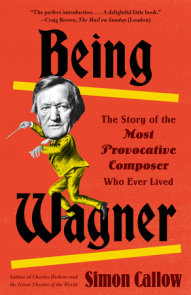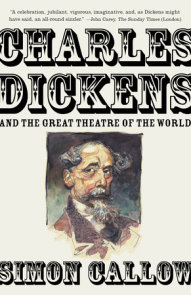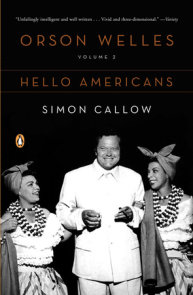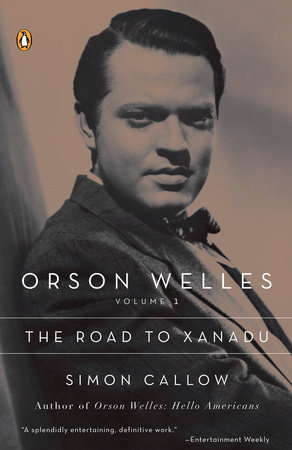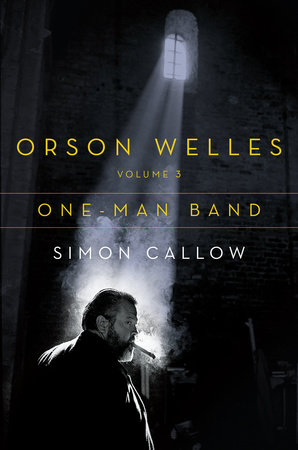


-
Apr 05, 2016 | ISBN 9780698195530
YOU MAY ALSO LIKE
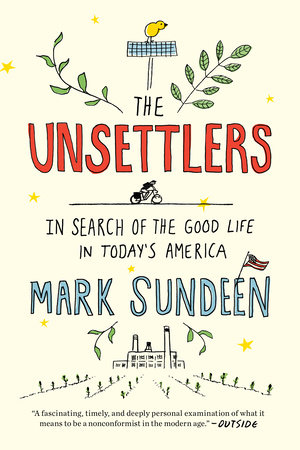
The Unsettlers
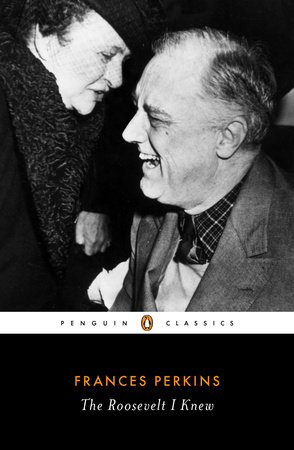
The Roosevelt I Knew
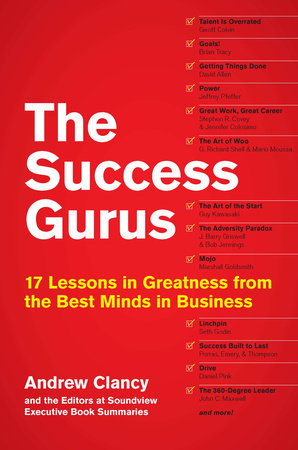
The Success Gurus
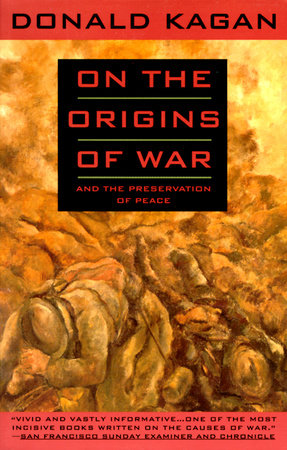
On the Origins of War
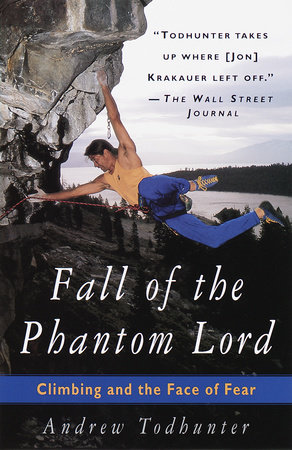
Fall of the Phantom Lord
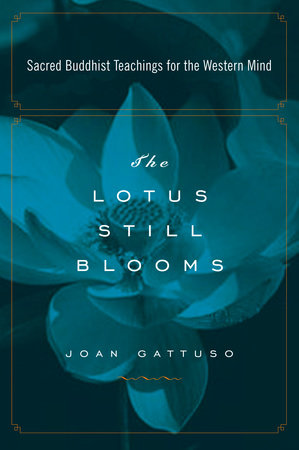
The Lotus Still Blooms
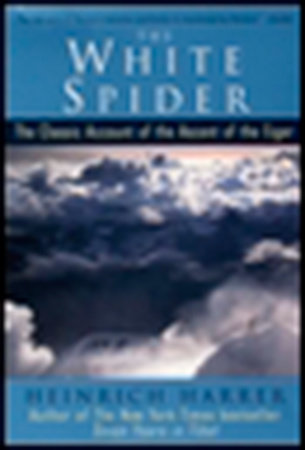
The White Spider
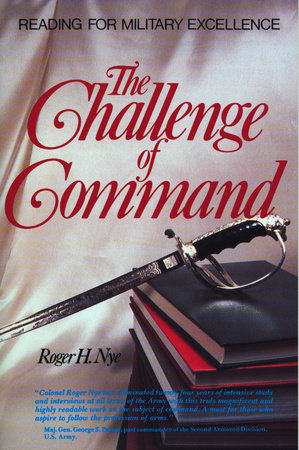
Challenge of Command
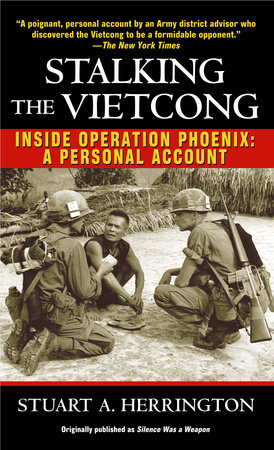
Stalking the Vietcong
Praise
“Supremely intelligent. . . . Callow is giving Robert A. Caro a run for his money. . . . he’s right to suspect that the conventional career Welles botched might have turned him into ‘just . . . another filmmaker.’ . . . no previous biographer has so expertly and convincingly analyzed Welles the creative dynamo. . . . Considering how often this period of Welles’s life has been portrayed as one frustration or defeat after another, the fecundity of what he did achieve is astonishing.”
—Tom Carson, The New York Times Book Review
“Simon Callow’s Welles books are an astonishing achievement, the full equal of Robert Caro’s granular investigations of Lyndon Johnson . . . . In the years since Welles’s death in 1985, many books about him have filled their pages with varying degrees of pedantic journalism, but Simon Callow’s prose is something to bask in. The distinguished actor and director understands Welles the way Welles understood Falstaff. His tone is sympathetic, often amused and occasionally aghast. ‘One senses something archaic about him,’ Mr. Callow writes. ‘He behaves like some great tribal chieftain, a warlord of art, riding roughshod over the niceties of conventional behaviour.’ . . . Cumulatively, Mr. Callow’s books imply that Welles’s Achilles’ heel, other than a chronic psychological bias toward chaos, might have been a fear of intimacy. There is almost nothing in these books about Welles having any deep emotional attachment to any of his three wives—let alone the mistresses who arrived and departed via revolving door. . . . One-Man Band is the richest as well as the best of Mr. Callow’s three books on the protean rogue he chose as his subject. It is the author’s monument, his Chimes at Midnight.”
—Scott Eyman, The Wall Street Journal
“For would-be biographers, Orson Welles is the colossus on the horizon that grows larger—and more incomprehensible—the nearer you approach. [One-Man Band is] richly detailed and immensely readable [and] emphasiz[es] the significant artistic achievements of this period and the reasons why they were undervalued . . . . What makes Callow’s biography so exciting is that he’s not willing to reduce Welles to a formula: misunderstood genius, for example, or self-destructive egotist.”
—Charles Matthews, The Washington Post
“There is a special risk in writing about Orson Welles. The dimension may get a little out of hand, as if they had to mime the physical size and imaginative reach of the subject. . . . Callow’s version of Welles as an epistemological teaser is a sort of celebration: ‘It is acutely enjoyable to watch Welles in the process of working up his version of his own history, trying on the variants for size, until he settles on the most colorful one.’ . . . Callow is a very good critic. . . . He wants to ‘describe’ Welles, not ‘judge’ him, but his biographical quest is more romantic, its object a ‘great natural phenomenon,’ and his view has ‘changed somewhat,’ he says, since his first volume. Then he was correcting myths about Welles, now he is ‘inclined to believe that the man was the myth—or rather that he grew into his own myth.’ The myth over time becomes less of a disguise and more of a piece of evidence.”
—Michael Wood, The New York Review of Books
“Simon Callow has become the preeminent chronicler of the life and times of Orson Welles. Over three sprawling biographies, Callow has traced Welles’ rise, fall, and years in the Hollywood wilderness. Orson Welles: One-Man Band, Callow’s latest book, follows the multihyphenate from 1948 to 1965. It’s a period of self-exile, one that finds the Citizen Kane director scrambling to cobble together money in Europe for films such as Macbeth and Othello that are daring and intermittently brilliant, but often show signs of their troubled birth and shoe-string budgets. It also recounts the making of two of Welles’ signature films—the pulpy and galvanizing Touch of Evil and the revelatory Chimes at Midnight, perhaps the most kinetic Shakespeare cinematic adaptation of all time.”
—Brent Lang, Variety
“During that time. . . . Welles was something of a chameleon and certainly a contradictory figure in both private and public life, which Callow doesn’t shy away from. Other books on Welles continue to come out, each with its own raison d’être, but it is unlikely anyone will attempt a biography as detailed or intimate as this one in our lifetime.”
—Leonard Maltin, IndieWire
“Callow is acutely qualified to elucidate the professional obstacles Welles faced. . . . Welles may have been half-mad, but he was also a genius, brimming with ideas. When he played Harry Lime in The Third Man, he came up with the ‘cuckoo clock’ speech his character gives at an amusement park, arguably the most memorable scene in the movie. And when Universal hired him to direct a potboiler, he spun straw into gold with Touch of Evil, a stylish indictment of racism and police brutality in a border town that is even more timely today. . . . At heart, Welles was an independent filmmaker, the granddaddy of them all, perhaps. He preferred chaos and freedom to the security and conformity of the studio system. Usually this required him to demean himself to raise money. . . . Still, one has to praise the commitment to his personal art, which remained unflagging despite multiple setbacks. . . . Callow sees him as a one-man band, and that he was, indeed. But Jean Cocteau offered a more revealing description, capturing the loneliness of a misunderstood visionary: ‘a solitary surrounded by humanity.’”
—Ariel Gonzalez, The Miami Herald
“Most of what’s written about Orson Welles—the Kenosha-born giant of theater, radio and movies—centers on his boy-genius period. . . . In many ways, the period covered in One-Man Band shows Welles at his most interesting, and most frustrating. He was on his own, free at last. Unfortunately, getting the financing to make that viable was as big a challenge as the work itself, and it didn’t help that his need to be larger than life made him as many enemies as it did admirers. Like many of the people and players in Welles’ orbit, Callow wrestles with his fascination with Welles, in whom flashes of genius are balanced against really, really bad behavior—like a king in exile ‘who still considered himself king,’ according to one Hollywood director Welles worked with, Richard Fleischer. In this period of his life, more than any other, Welles’ fevered mind cooked up productions that seemed to defy the laws of arts and pop-culture physics. . . . Through it all, Callow shows that Welles defied easy analysis or explanation. ‘It is characteristic of many of Welles’ commentators that they select one or other of the many Welleses as quintessential,’ Callow accurately writes, ‘but the mystery of the man is that all the Welleses co-exist; all are true.’”
—Chris Foran, Milwaukee Journal-Sentinel
“The literature of Orson Welles is, by now, almost as large as the man himself used to be. In the large Wellesian library, he is usually under consideration by film intellectuals. . . . What makes Callow so special in the bursting Wellesian canon is the point of view of a British working repertory actor – a fellow who, according to fable, first came to the theater to work in Olivier’s box office. . . . [after Citizen Kane and The Magnificent Ambersons, Welles] was a symbol of self-indulgence and chaotic decline, which is why Callow is so valuable about this period of Welles’ life, from 1947 to 1964. It was during this period that Welles made Touch of Evil, sometimes playfully hyperbolized as the greatest B movie of all time, and the Falstaff film that is often considered Welles’ masterpiece (especially by actors), Chimes at Midnight. It is both Callow’s chutzpah and cunning to imagine Welles from the inside. Take this about Welles’ misbehavior after appearing in Richard Fleischer’s Compulsion: ‘He behaves badly; he apologizes. It is a recurring pattern, though he rarely apologizes to anyone without power. Mostly, what it is is a matter of status. He is being humiliated, diminished, disrespected in some way.’ Callow GETS Orson Welles.”
—Jeff Simon, Buffalo News (Editor’s Choice)
“These are rich days to be a fan of Orson Welles. . . . Thirty-one years after his death, Welles’ reputation as an innovative director of film and theater has never been greater. At least a dozen books have been published on his life and art in the past two years. Perhaps the most critically acclaimed has been the enthralling, obsessively detailed multi-volume biography by Simon Callow. . . . The most important achievement of this biography is that it upends the myth of the post-Kane slide into irrelevance. The chapter on Touch of Evil, for example, helped me to appreciate that complex crime film in thrilling new ways. One-Man Band concludes with the release of Chimes at Midnight, the glorious amalgamation of ‘history plays’ that showcase Shakespeare’s greatest comic creation, Sir John Falstaff. Boisterous and magniloquent, a thorn in the side of authority, Falstaff was the role Welles seemed always destined to play.”
—Sam Shapiro, Charlotte Observer
“Hugely entertaining . . . The frantic pace at which Welles lived his life and produced his art—the good, great and frustratingly unsuccessful—is a roller coaster ride of ego, appetite and genius. What gives Callow’s work such vivid life is not only the man, Welles, and his fantastic ideas, projects, and unending search for some kind of perfection, it is how Callow realizes and relates that in so many ways Welles was his own worst enemy. But perhaps—I think the author would agree—that was all to the best, in the end? Orson Welles would not have been nearly as fascinating disturbing, thrilling and motivated had everything turned out exactly right—the financing, the actors, the un-ending resistance from studios. Callow’s chapters on Touch of Evil alone are worth the price of this colorful, extraordinarily intelligent and deliciously realistic glimpse at a genuine visionary who was perhaps too inspired for his own good.”
—Liz Smith, New York Social Diary
“Riveting and wonderfully wrought . . . An immersive, engaging, and immensely readable portrait of Welles, revealing a complicated man and innovative artist whose own life mirrored the Shakespearian tragedies of which he was so fond.”
—Publishers Weekly (starred review)
“Juicy, provocative latest installment in the comprehensive life of a self-destructive genius. . . . Callow, with his own extensive theatrical background, remains Welles’ most astute observer, with an unerring sense of both his subject’s brilliance as a visual artist and the comparable limitations of his (often hammy) performances. Welles rightly imagined that people would never stop writing about him after he died. Callow continues to set the standard in this increasingly crowded field.”
—Kirkus Reviews (starred review)
“Despite the endless volumes written on the legendary Orson Welles, no one has captured his life in such detail and intimate perspective as acclaimed film and theater actor/director Callow. . . . Callow’s remarkable approach renders a more personally guided and analyzed survey of Welles’s accomplishments than a traditional chronicle. Applying his knowledge of film and theater, he supplies a viewpoint that is different from other biographers. . . . The audience for an intense, multivolume portrait of Welles [will] devour this literate and engaging book.”
—Library Journal
“In this third volume of his robust biography, Simon Callow states that the bulk of his subject’s work was ‘an exercise . . . in gigantism’. Everything about Welles—his appetites, his energies, his stature—was vast, the marks of a man who filled space without needing heels. In tribute, Callow has allowed his writing to expand, resulting in a biography as huge as if it had been fed a Welles-style diet of roasted chicken and foie gras. . . .In every way, Callow has captured his subject as he wants him: not a shadow in a doorway, not an actor behind a prosthetic nose, not a dying big beast, but ‘alive and kicking’ and, as Dietrich says in Touch of Evil, ‘some kind of a man.’”
—Victoria Segal, The Sunday Times (UK)
“This still unrolling biography is a magnificent achievement. Never does a word seem out of place. Callow illuminates strange byways as well as giving fresh, rounded assessments of the key projects. As you would expect from a stage interpreter of Dickens, he is a master of revealing character — and Welles, for all his flaws, was not short of that.”
—Christopher Silvester, Financial Times
“[One of] the year’s most entertaining biography is Orson Welles: One-Man Band. . . . This wonderfully vivid account of Welles’s tireless exploits in theatre, radio, film, television and even ballet is compulsive reading. Only an actor, director and writer as gifted and ebullient as Callow could have found the nerve to do this. Callow becomes Welles and, strangely, Welles almost becomes Callow.”
—Robert McCrum, The Observer (Books of the Year 2015)
“Callow writes with energy and purpose . . . Welles in his middle years is a more engaging prospect than most artists at a similar point, because he always appears much larger than life—seems, indeed, more of a fictional character than a real one. He has been lucky to have Callow as a biographer, balancing warmth with scepticism, fondness with reproof. . . . His account of Welles, perhaps inadvertently, illustrates a truth about some actors: they are essentially children, raised on encouragement and endearments, spoon-fed their lines which they perfect in the creche of rehearsal, then perform for the approval of their adult audience. . . . Callow calls him an ‘Infant Prodigy’, with a temperament to match: he never learned to play nicely with others. It was Orson’s show, or no one’s.”
—Anthony Quinn, The Guardian
“[Callow] is as critically astute about [Welles’s] good performances in bad films, even his bad performances in good films, as anyone. But he is doing something else. He is taking the man for all he represents in the culture of Hollywood and Europe, in the theatre of his day, as a pioneer of television arts programmes and chat shows, and as a force of nature, a phenomenon, an incomparable bravura personality (as Kenneth Tynan called him), a walking (just about) compendium of enthusiasms, obsessions, friendships, frustrations and sheer lust for spinning out a ribbon of dreams with, as he said, ‘the best electric train set a boy ever had’. And Callow does this by recognising in Welles someone so rare, and so reprehensibly admirable, that his modus operandi—guzzling, drinking, travelling from Rome to the South of France by cab for a party, spending money he doesn’t have, smoking implausibly long cigars, wheedling, harrumphing, shooting and editing through the night, romancing and revelling—is as marvellous as the best of his work; the life, in fact, is the work, and inseparable from it. . . . Callow continuously strikes to the quick and the essential in Welles.”
—Michael Coveney, The Independent (UK)
“Simon Callow’s third volume of his definitive biography, spanning a typically busy period between 1947 and 1966, shows the actor-director-writer-magician-raconteur at his most charming and his most obnoxious. He had so many enemies, it seems, because he made them compulsively. His bullshit threshold was low, unless the bullshit was his own bullshit.”
—Yo Zushi, New Statesman (UK)
“Riveting and wonderfully wrought . . . An immersive, engaging, and immensely readable portrait of Welles, revealing a complicated man and innovative artist whose own life mirrored the Shakespearian tragedies of which he was so fond.”
—Publishers Weekly (starred review)
Praise for Orson Welles, Volume 2: Hello Americans
“Animated by a brisk intelligence . . . He shapes and interprets his material and with panache places his story in rich context.”
—The Atlantic Monthly
“Mr. Callow, a divine and witty actor, is also a gifted writer. . . . The sparkling second volume is a rollercoaster.”
—The Wall Street Journal
“Unfailingly intelligent and well written . . . Callow’s portrait is so vivid and three- dimensional.”
—Variety
Praise for Orson Welles, Volume 1: The Road to Xanadu
“This riveting, revealing portrait of the legendary director and star is unlikely to be surpassed.”
—Los Angeles Times Book Review
“A wonderfully readable, sharp, shrewd and evenhanded biography . . . Callow is a witty and feeling biographer.”
—Chicago Tribune
“Callow is in control all the way.”
—The New York Times Book Review
21 Books You’ve Been Meaning to Read
Just for joining you’ll get personalized recommendations on your dashboard daily and features only for members.
Find Out More Join Now Sign In






